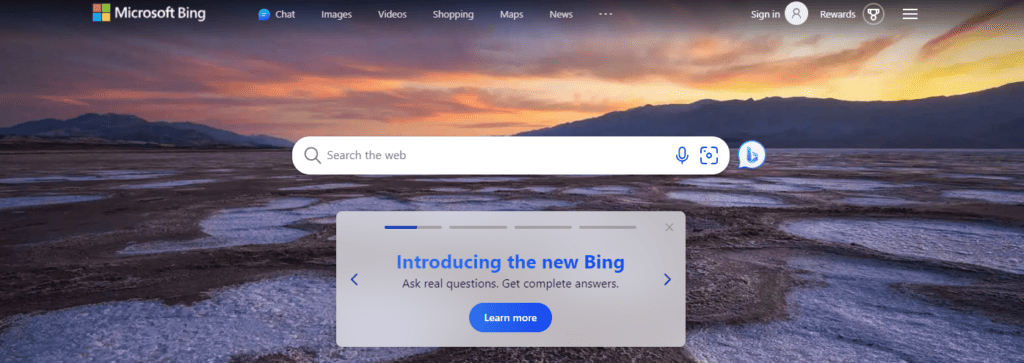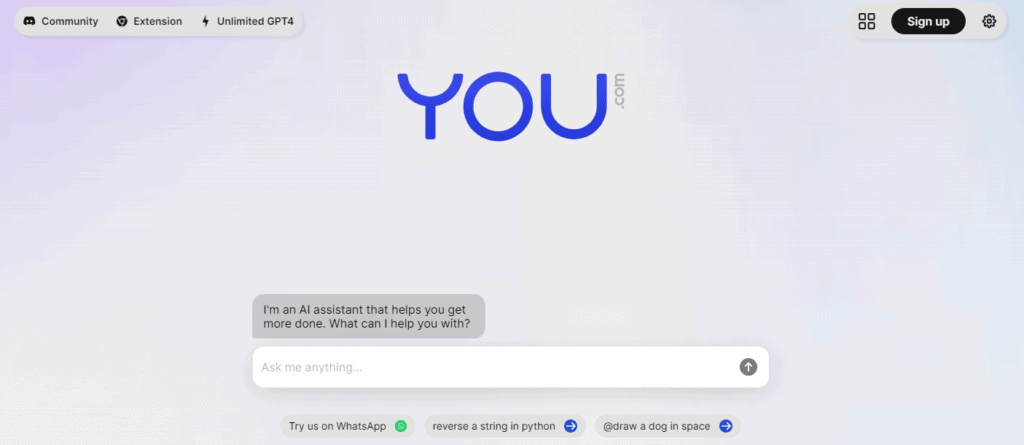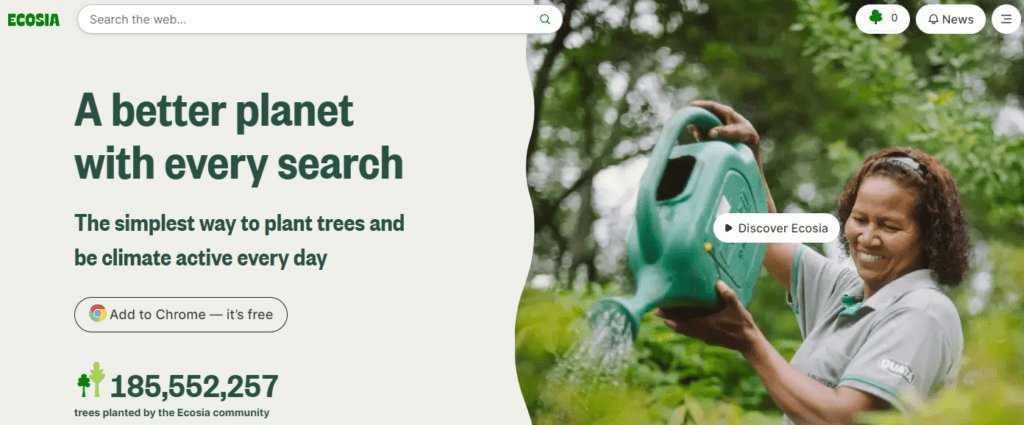
When it comes to searching for information online, most of us rely on search engines to provide us with the most relevant results. While Google is the most popular search engine, there are many other options available that offer unique features and benefits.
With growing concerns about data collection and online tracking, many people are turning to alternative search engines that prioritize user privacy. Some of the best privacy-focused search engines include DuckDuckGo and StartPage. These search engines do not track your search history or personal information, making them a great choice for those who value their privacy.
1. DuckDuckGo

DuckDuckGo is a privacy-focused search engine that has gained popularity in recent years. Here are some pros and cons of using DuckDuckGo as your primary search engine:
Pros
- Privacy: DuckDuckGo does not track or store any of your personal information. This means that your searches are not tied to your identity, and your data is not sold to advertisers.
- Customization: DuckDuckGo allows you to customize your search results by region, language, and content type. You can also filter out results that contain adult content or that are hosted on specific domains.
- Instant Answers: DuckDuckGo provides instant answers to many common queries, such as weather forecasts, sports scores, and stock prices. This can save you time and effort when looking for quick information.
Cons
- Limited Results: DuckDuckGo’s index is smaller than that of Google or Bing, which means that you may not find as many results for certain queries. However, DuckDuckGo does try to make up for this by providing more relevant results.
- Less Advanced Features: DuckDuckGo does not offer some of the advanced features that other search engines do, such as image search or real-time search results. However, it does offer a range of other useful features, such as the ability to search for specific file types or to exclude certain keywords from your search.
Overall, DuckDuckGo is a solid choice for those who value their privacy and want a customizable search experience. While it may not have all the features of other search engines, it does offer some unique benefits that can make it a valuable tool for certain users.
2. Startpage

Startpage is a private search engine that prioritizes user privacy. Startpage is a popular alternative to Google and other search engines that track user data.
Pros
- Privacy-focused: Startpage is committed to protecting user privacy. They do not track user data or save search history. They also offer an “Anonymous View” feature that allows users to browse websites without leaving any trace of their activity.
- Unbiased search results: Startpage uses Google’s search engine but removes all identifying information from the search query before sending it to Google. This means that users get the same search results as they would on Google, but without any personalization or tracking.
- Easy to use: Startpage has a clean and simple interface that is easy to navigate. Users can search for web pages, images, videos, and news articles all from the same search bar.
- No ads: Startpage does not show any ads on their search results page, which means that users can browse without distractions or interruptions.
Cons
- Limited language support: Startpage only supports a limited number of languages, which may be a barrier for non-English speakers.
- Not as comprehensive as Google: While Startpage uses Google’s search engine, it may not be as comprehensive as Google itself. Some users may find that they need to use multiple search engines to find what they are looking for.
Overall, Startpage is a great option for users who prioritize privacy and want a simple, easy-to-use search engine. While it may not have all the features of other search engines, its commitment to user privacy is a major selling point.
3. Bing

Bing is a search engine owned and operated by Microsoft. Bing tries to differentiate itself from Google by focusing on delivering visually appealing search results, providing more relevant answers, and integrating more closely with other Microsoft services.
Pros
- User-friendly interface: Bing has a clean and easy-to-use interface that is visually appealing. It provides search options across the top of the screen and offers suggestions in the leftmost column, which can be helpful for research purposes.
- Visual search: Bing offers a visual search feature that allows users to search for images and videos by clicking on them. This feature can be useful for finding inspiration or identifying objects.
- Privacy: Bing has a strong privacy policy that protects users’ personal information and search history. It also offers a “Do Not Track” feature that allows users to opt-out of targeted advertising.
Cons
- Less popular: Bing is less popular than Google, which means that some websites may not be optimized for Bing’s search algorithm. This could result in lower-quality search results for certain queries.
- Limited language support: Bing supports fewer languages than Google, which could be a disadvantage for users who speak languages that are not supported by Bing.
Overall, Bing is a decent search engine that offers some unique features and benefits. However, it may not be the best option for users who require comprehensive search results or support for less commonly spoken languages.
4. You.com

We found that You.com is a promising search engine that uses AI technology to deliver more accurate and relevant search results.
Pros
- Natural language processing (NLP) technology: You.com uses NLP to understand the meaning behind search queries and deliver more accurate results.
- Privacy-focused: You.com does not track or store user data, making it a great option for those concerned with online privacy.
- User-friendly interface: The search engine has a clean and simple interface, making it easy to use.
Cons
- Limited search results: You.com is a relatively new search engine, so it may not have as many results as more established search engines.
- No image or video search: Currently, You.com only offers web search results and does not include image or video search.
Overall, we think You.com is a promising search engine that is worth trying out. Its focus on privacy and use of AI technology make it a unique and useful option for those in search of more accurate and relevant search results.
5. Yahoo!

Yahoo! is a popular web portal with a search engine powered by Bing. Here are some pros and cons of using Yahoo! as a search engine:
Pros
- Customizable New Tab: Yahoo! allows users to customize their New Tab with Yahoo! search, Flickr photos, top sites, and more. This feature enhances the user experience and makes it easier to find relevant information.
- News and Mail: Yahoo! not only provides a search engine but also offers news and mail services. This makes it a one-stop-shop for users who want to stay updated on current events and communicate with others.
- Variety of Search Options: Yahoo! offers a variety of search options including web, images, videos, news, and more. This makes it easier for users to find what they are looking for without having to use multiple search engines.
Cons
- Limited Privacy: Like Google and Bing, Yahoo! collects data to customize ads and searches. This may not be ideal for users who prioritize their privacy.
- Not the Most Popular: While Yahoo! is still a popular search engine, it is not as widely used as Google or Bing. This may make it harder to find certain information or get the most relevant results.
Overall, Yahoo! is a solid search engine with some unique features. While it may not be the most popular, it is still worth considering as an alternative to Google or Bing.
6. Ecosia

Ecosia is a search engine that aims to make the world a better place by planting trees. It is a non-profit organization that uses the revenue generated from search ads to fund tree planting projects around the world.
Pros
- Environmental impact: By using Ecosia, we can contribute to reforestation efforts and help combat climate change. The search engine claims that every search removes about 0.5 kg of CO2 from the atmosphere and that it has already planted over 100 million trees.
- Transparency: Ecosia publishes monthly financial reports that show how much revenue was generated and how it was spent. This level of transparency is rare among search engines and helps build trust with users.
- Privacy: Ecosia does not track personal data or sell user information to third parties. It also uses secure HTTPS encryption to protect user searches.
Cons
- Search results: Ecosia’s search results may not be as comprehensive or accurate as those of Google or Bing. This is because it uses Bing’s search engine technology and adds its own algorithms to prioritize eco-friendly results.
- Limited features: Ecosia does not offer as many features as Google or Bing, such as maps, news, or translation services. It is primarily a search engine focused on tree planting.
Overall, Ecosia is a unique and worthwhile search engine for those who want to make a positive impact on the environment. While it may not have all the features of other search engines, its commitment to sustainability make it a compelling choice for those who value these qualities.
7. YouTube

YouTube is the most popular video-sharing platform in the world, and it is a great Google Search alternative.
Pros
- Vast selection of content: YouTube has a massive library of videos, including music videos, educational content, news clips, and more. Users can find content on almost any topic.
- Informative: Provides a visual element to search results with videos and can be a great source of educational content and tutorials.
- Easy to use: The platform is user-friendly and easy to navigate. Users can easily search for videos, create playlists, and subscribe to channels.
Cons
- Privacy concerns: YouTube collects data on its users, including their search history and watch history. This data is used for targeted advertising and may be shared with third-party advertisers.
- Excessive advertising: YouTube has a lot of advertising, which can be intrusive and annoying. Users may have to watch multiple ads before watching a video.
Overall, YouTube is a great platform as a search engine. However, users who are concerned about privacy or excessive advertising may want to consider alternative platforms.
Conclusion
In conclusion, there are numerous search engines available on the internet, but not all of them offer the same level of accuracy, relevance, and user experience.
While Google is the go-to search engine for most people, it’s important to note that there are several other search engines that offer more privacy and other benefits.
Ultimately, the choice of search engine depends on individual preferences and needs. Some users may prioritize privacy, while others may value accuracy and relevance.
Frequently Asked Questions
Which search engine prioritizes user privacy?
When it comes to user privacy, DuckDuckGo is one of the best search engines out there. It doesn’t track your search history, and it doesn’t store any personal information. This means that your searches are completely private, and you won’t be bombarded with targeted ads.
What is the most accurate search engine available?
There is no single search engine that is the most accurate. Different search engines use different algorithms to rank search results, and they may prioritize different factors. However, Google is generally considered to be one of the most accurate search engines, due to its extensive database and sophisticated algorithms. Other accurate search engines include Bing and Yahoo.
